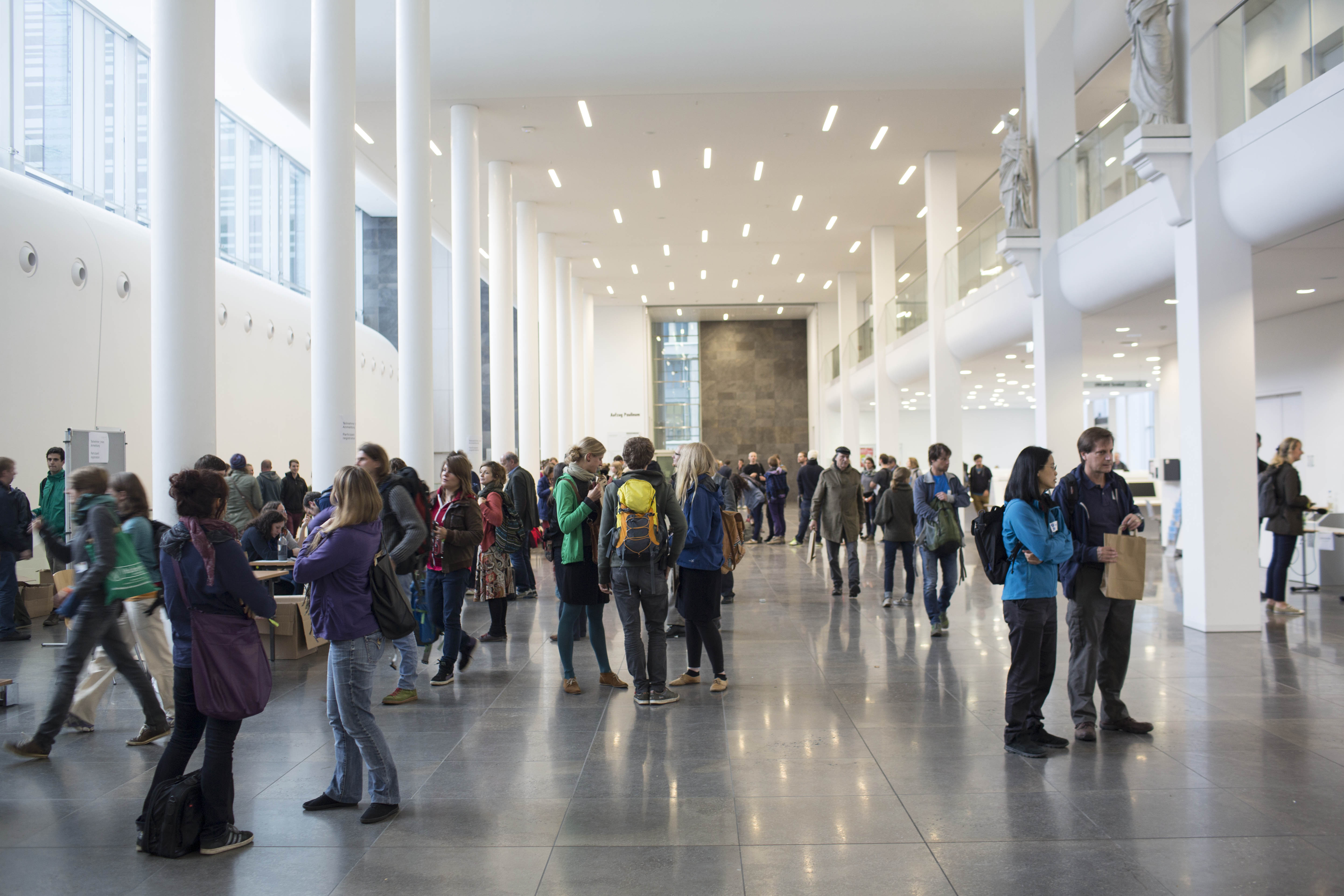COVID-19 is both one and the same as any other ecological crisis (such as climate change) because its emergence is rooted in the same mode of production that has generated all other ecological crises and social inequalities of our times. In late 2019, a novel coronavirus (SARS CoV-2) emerged from a wet market in Wuhan in the province of Hubei in China. It has so far resulted in cases over 10.2 million and the deaths of over 500,000 people worldwide. Only months ago, the world was taken aback by unprecedented bushfires in Australia, massive youth movements striking for stronger action to tackle climate change, and a groundswell of protests across the world demanding greater democracy, an end to state oppression, and against debilitating economic austerity in places ranging from Hong Kong, to India, to Chile, respectively. In the midst of these events, COVID-19 felt like it came out of nowhere. The situation (and potentially the virus itself) is rapidly evolving, has taken world governments by surprise, and left the stock market reeling. Its emergence, however, makes self-evident the fault lines in global production systems and the ultra-connectivity of a globalized world. Like climate change, it affects everyone (ultimately), but unlike climate change, it occurs at a much faster rate and more severely impacts the most economically vulnerable, who cannot afford or have the possibility to engage in social distancing. Governments are walking on a tightrope, a balancing act between ensuring public safety and well-being and maintaining profit margins and growth targets. It’s the very same dilemma as climate change- just occurring at a faster rate, arising everywhere, and obliterating the possibility to ignore it and think about it later. In fact, one may argue that the pandemic is part of climate change and therefore, our response to it should not be limited to containing the spread of the virus. "Normal" was already a crisis and so returning to it cannot be an option. The coronavirus pandemic is like a chunk of ice falling off of a melting glacier. You can see the ice falling, but you can't see the melting of the whole glacier. Similarly, climate change will keep dropping chunks of ice at humanity well after the COVID-19 pandemic subsides. Unless we prioritize a diversity of alternatives that put well-being over growth forecasts and profit, ecological breakdown will forever remind us that societal death is just hanging over our shoulders, always ready to scale down the arrogance of human exceptionalism a peg or two…or ten. COVID-19 is both one and the same as any other ecological crisis (such as climate change) because its emergence is rooted in the same mode of production that has generated all other ecological crises and social inequalities of our times. Climate change plays itself out in different countries based on geographic and socio-economic factors. Similarly, COVID-19 will unfold in ways that reflect the age of populations, the response efficiency of governments, and many more still unknown factors. While climate change has disproportionate impacts on the economically vulnerable, on food providers (largely women), and on people of the global South, the response strategies to COVID-19 similarly weave through relations of class (e.g. those “essential” workers who are not afforded sick leave or PPE), gender (women thrust into roles as care-providers), and race (e.g. scapegoating Asians and suggesting to trial vaccines on African populations). The spatial and temporal dimensions of health crises as ecological breakdown The ease by which COVID-19 moves through human bodies, and the difficulty of containing it across any human-imposed border is a remarkable case of how humans are dependent on nature, and indeed are part of nature and cannot be separated from it. The study of world ecology for example sees the global and industrial production systems of capitalism as a very specific ecological relationship, without viewing humans as outside of nature. Industrial growth and production systems shape the ecological world and are in turn shaped by new and emerging ecological relations. Industrial production transforms relationships between people and their living and non-living world in ways that resemble a machine. The consequences of these transformations result in all kinds of effects on life, mostly the loss of species, but also the emergence of new (unwanted) ones like viruses. As socialist biologist Rob Wallace argues in his book “Big Farms Make Big Flu: Dispatches on Infectious Disease, Agribusiness, and the Nature of Science,” increasing land-grabs by agribusiness from industrialized countries has pushed deforestation and land conversion into overdrive for faster and cheaper food production. The transformation of vast areas of land into rationalized production factories provides ideal conditions for well-adapted pathogens to thrive. Any argument that claims pathogens and plagues have always existed across history is to neutralize the globalized nature of current land degradation and hyper-connectivity, allowing diseases to spread faster and further than ever before. A recent study raised an important concern of attempting to respond to climate change on a time scale that is convenient to society (e.g. clocks and calendars) but has absolutely no relation to the time scales of changes we are actually witnessing with ecological breakdown. The temporal disconnect of COVID-19 from society's regularized temporal rhythms of work and leisure is becoming rapidly obvious, grinding the production of global society to a screeching halt within a matter of one week. It is thoroughly arrogant to assume climate change, like COVID-19, is going to respond to our schedules, and in particular those aligned with economic growth. The fast progression and potential evolution of COVID-19 clearly defies all of society's predictable and linear categories of time. Not only is the incubation period for infection hard to pin down, but so is the lag time between infection and when symptoms show up (if they do). Similarly, lockdowns will only manifest in reductions of cases weeks after they are implemented. Instead, society must shape its economic relations to respond in the same temporalities to the social and ecological realities it is experiencing. This is what a degrowth strategy within and beyond the current pandemic should be based on. To this extent, COVID-19 can serve as a lesson showing the interconnectedness of society’s impacts and actions on the planet and the immediacy of response required shift our relationships to the world. The lag time between when social distancing measures are put in place and impacts on the reduction of COVID-19 cases once again shows us that biological systems do not obey human-imposed rules. This is NOT degrowth! Could response strategies to suppress COVID-19 be the impetus to actually respond in synch with broader ecological change, rather than as stop-gap measures to get back to “business-as-usual” as quickly as possible? The answer remains to be seen, but some measures have already been proposed that have been otherwise considered at worst anathema to capitalism, including the nationalization of private enterprise in France and a universal basic income in the US. As some have argued, COVID-19 presents society with an opportunity to actually respond to climate change through “planned degrowth” that prioritizes the well-being of people over profit margins. This might occur by getting accustomed to lifestyles and work patterns that prioritize slowing down, commuting less, shorter work weeks, abolishing rents, income redistribution from the richest to the poorest, prioritizing workers health (especially for low-wage migrant workers who are substantially more vulnerable in the face of an economic downturn), and relying on more localized supply chains. Yet, the global slowdown caused by COVID-19 is not degrowth; it does not reflect the ethical and political commitment to development predicated on prioritizing well-being over profit. We need a just climate transition that ensures the protection of the poor and most vulnerable and which is integrated into our pandemic response. Obviously, the conditions surrounding COVID-19 are not ideal for the just climate transition that is so badly needed, but the rapid and urgent actions in response to the virus and the inspiring examples of citizen-led mutual aid also illustrate that society is more than capable of acting collectively in time to what it is experiencing. In much the same way that meaningful relationships with people don’t arise in a vacuum, degrowth won’t happen just by talking and theorizing about what it might look like. It has to be felt; it has to be a political and economic response rooted in care and in synch with the rapidly changing world we are experiencing. This piece is a version that originally appeared on Aljazeera and can be found here, and a longer-form version on Uneven Earth found here.

By Christiane Kliemann When listening to all the keynotes, panels and sessions, or simply joining the lively discussions between conference participants, there is the notion of an overall agreement that a broader new vision for society and the economy is most urgently needed. However, the elephant in the room is that such vision is almost impossible to shape, if it is to represent the diversi...
Interview with Katja Kipping Katja Kipping is chairwoman of the German Left Party and Member of the German Parliament. Besides her engagement for good working conditions in her capacity as spokesperson for social affairs, she supports the exchange between party politics and civil society through engaging in social movements such as the network for unconditional basic income. For this interview...

By Ulrich Brand “Business as usual” is the motto of ruling politics nowadays. The dominant public discussions and policies are staged as necessities and unavoidable adaptions to an austerity policy which is apparently without alternatives. We are assured that rising poverty-rates, the redistribution of wealth from bottom to top and the cutback of social rights and democracy are only te...